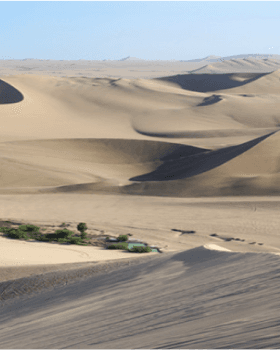

Peruvian Dances
five peruvian dances that will enchant and delight youWe all know variety is the spice of life, and here in Peru, we take that saying to heart! Peru offers enormous gastronomic, cultural, ethnic, and linguistic diversity. But it’s our wide range of typical Peruvian dances that will literally have you on your toes! Read on to discover five of the typical dances that will surely enchant and may even inspire you to visit their places of origin. Just when you think you couldn’t love this country any more passionately, let us show you that you can!
5 traditional peruvian dances
Peru's rich diversity extends beyond its cuisine and landscapes to its vibrant cultural traditions. Among these, five traditional Peruvian dances stand out for their unique rhythms and historical significance. From the graceful movements of the Marinera to the lively beats of the Festejo, each dance tells a story of Peru’s ethnic heritage. The Scissors Dance, Diablada Puneña, and Buri Buriti further showcase the country’s artistic depth, with each performance reflecting the spirit of its people. These dances will captivate you and offer a deeper connection to Peru’s cultural heart.
Marinera
The Marinera is one of the most coquettish and romantic Peruvian dances. As the national dance of Peru, it is performed throughout the country, but especially in the northern region of Trujillo. Every January, a Marinera contest draws huge crowds to Trujillo. The dancers, an elegantly dressed man and woman, use handkerchiefs as props as they depict their romantic courtship in various stages: attraction, flirtation, seeming indifference, and finally, mutual acceptance and love. This beautiful dance has a mesmerizing effect on the audience, as the man attempts to win the love of the woman with his elegantly choreographed moves; and she gracefully avoids him (at least for a while.) Looking for something truly thrilling and exciting on your next trip to Peru? You can view these amazing Peruvian dances live and in person! Contact us at Explorandes to discover how!

Festejo
One of the most celebratory and joyful Peruvian dances is the Festejo. This coastal Afro-Peruvian dance blends West African (criolla) and Spanish musical rhythms.Typical instruments are the flamenco guitar, the cajón, the cajita, and the quijada (the latter three are percussive.) The intricate rhythms are contagious and will have you dancing along in no time! Dancers wear colorful costumes and gyrate to the upbeat rhythms using their whole bodies in a blissful celebration of music and life.

The Scissors Dance
An impressive spectacle, and one of the most physically and mentally challenging Peruvian dances, is known as The Scissors Dance. Performed by dancers known as Danzaq, this dance is native to the south-central region of Ayacucho. Legend has it that the dance started as a confrontation between two Danzaq to prove who had the greatest prowess and physical stamina. The competing performers created a vigorous dance full of athletic jumps and twirls, performed while snipping the air percussively with a large pair of scissors. In the time of the Inca empire, scissors dancing was a way to give thanks to Mother Earth, Pachamama, for all the gifts she generously offered.

Diablada Puneña
Among the Peruvian Dances with religious significance, the Diablada Puneña originates from the Puno/Lake Titicaca region. The dance is performed by dancers wearing elaborate horned masks (the devils) and a dancer with wings, depicting the archangel Michael. It is meant to portray the never-ending struggle between good and evil. The dance moves are athletic and graceful; the costumes vibrant and colorful.

Buri Buriti
This is one of the typical Peruvian dances of the jungle, originating in Ucayali, an inland region of the Amazon Rainforest. Characterized as a war dance, the Buri Buriti is performed by native people preparing to defend their land from other tribes. The dancers dress in typical jungle attire, circling with bows and arrows, displaying the alertness and fierceness required for the Amazon way of life.




March - December
5 days / 4 nights
April - October
12 days / 11 nights



